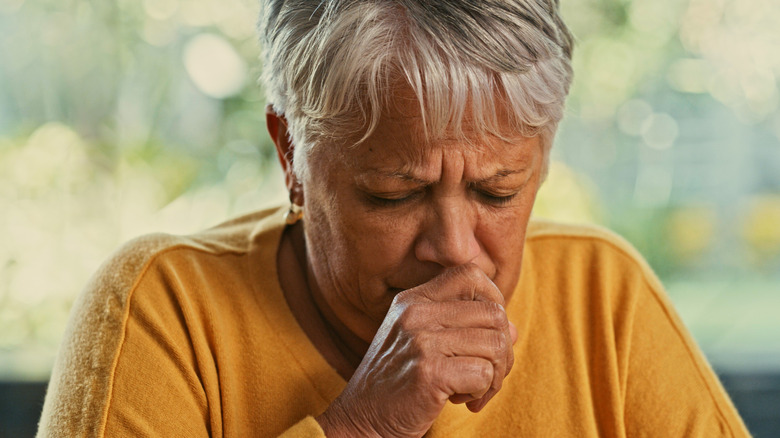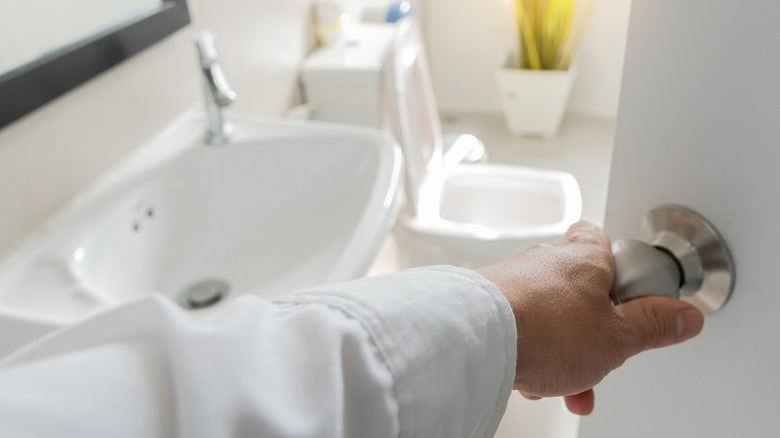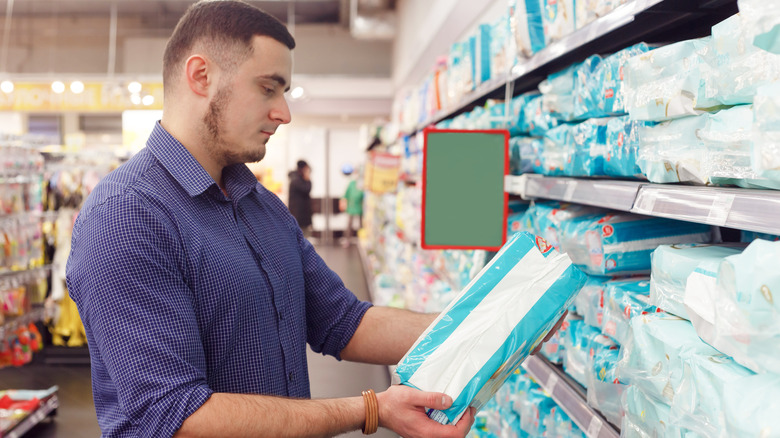What It Means When Coughing Makes You Poop
Traveling at an estimated 100 miles per hour, Penn Medicine explains that a cough is the result of oxygen being abruptly ejected from the lungs up through the epiglottis, a hollow tube that aids in swallowing and serves as a protective barrier for our voice box (via Cleveland Clinic).
During a cough, our abdominal and rib muscles constrict in order to help generate the pressure needed to propel air out of the lungs at a fast enough speed to drive out any contaminants. However, our rib and abdominal muscles aren't the only muscles that contract during a cough. Referred to as the cough-anal reflex, our internal and external sphincter muscles also tighten to protect against anal leakage from increased abdominal pressure. While earlier research has suggested that the intensity of the cough-anal reflex is influenced by the strength of a cough, a more recent 2017 scientific review published in Frontiers in Human Neuroscience outlines how this reflex actually occurs ahead of a cough in anticipation of the strain to come.
Despite this protective mechanism, some people still experience stool leakage unrelated to a bowel movement, such as when coughing, reports Cedars-Sinai. This is a condition known as fecal incontinence and it can have a number of different causes.
Fecal incontinence may be related to a health condition or outside factors
1 in 12 adults is estimated to experience fecal incontinence, reports Cedars-Sinai. The condition is more often seen in women and older adults. If you experience anal leakage when coughing, it may be related to hemorrhoids or a bout of constipation or diarrhea. In other cases, fecal incontinence may be linked to a chronic health condition, such as diabetes, digestive tract inflammation, a tumor, or birth defects. A 2018 retrospective study published in Digestive Diseases and Sciences demonstrated that those with cystic fibrosis may also be more susceptible to fecal incontinence due to its signature symptom of persistent cough.
Other times, difficulty controlling one's bowel movements may not be related to a health condition at all but a result of outside factors, such as surgical procedures that involve widening the anal sphincters. Alternatively, if coughing makes you poop, it may be a sign that you're pushing too hard when going number two. Mayo Clinic experts explain that over-straining when on the toilet can gradually lead to nerve damage or breakdown of the sphincter muscles.
Managing fecal incontinence in your daily life
If fecal incontinence is related to an underlying health condition, treatment of the existing condition may help relieve symptoms. Generally speaking, however, common treatment methods include the use of certain medications, sticking to a fiber-rich diet, or practicing muscle-strengthening exercises. Depending on the severity of your case, a healthcare provider may also suggest using an anal plug, an electrical stimulation device, muscle injections, or surgery (via Cedars-Sinai).
If you experience fecal incontinence when sneezing, passing gas, coughing, or otherwise, talk to your doctor about ways to manage and treat the condition. Being prepared for potential leakage ahead of time can also be helpful. Keep a bag of essential items accessible, such as a fresh pair of clothes, underwear, wipes, or incontinence pads. Additionally, fecal deodorant products are also available. Some tablets and capsules can be purchased over-the-counter (OTC), but always consider speaking with your physician first about potential medication options.



